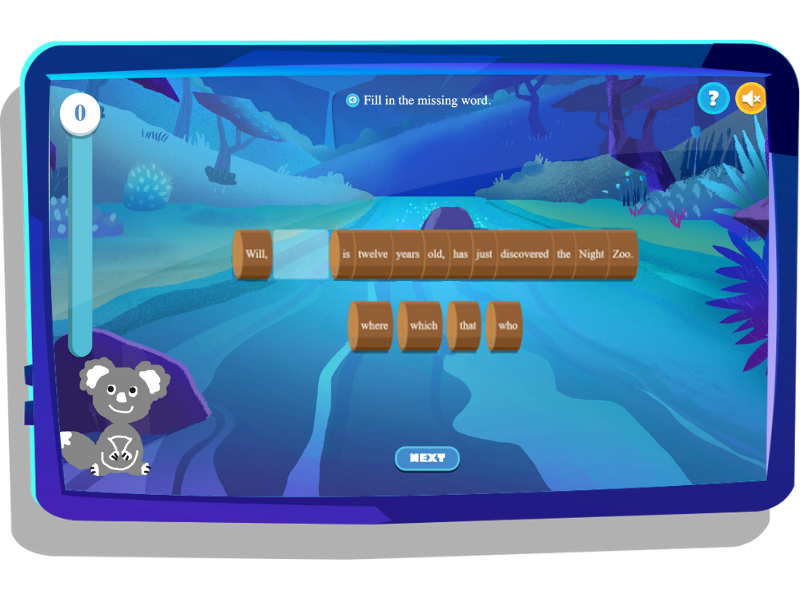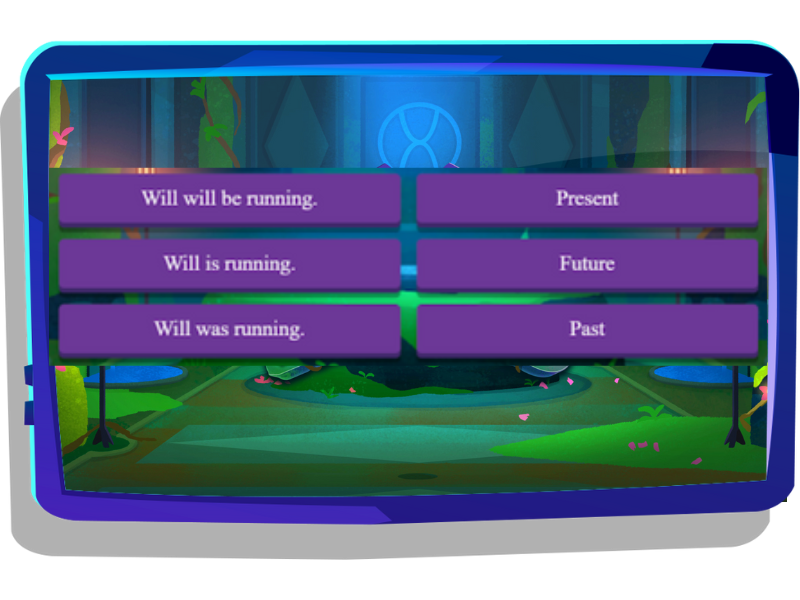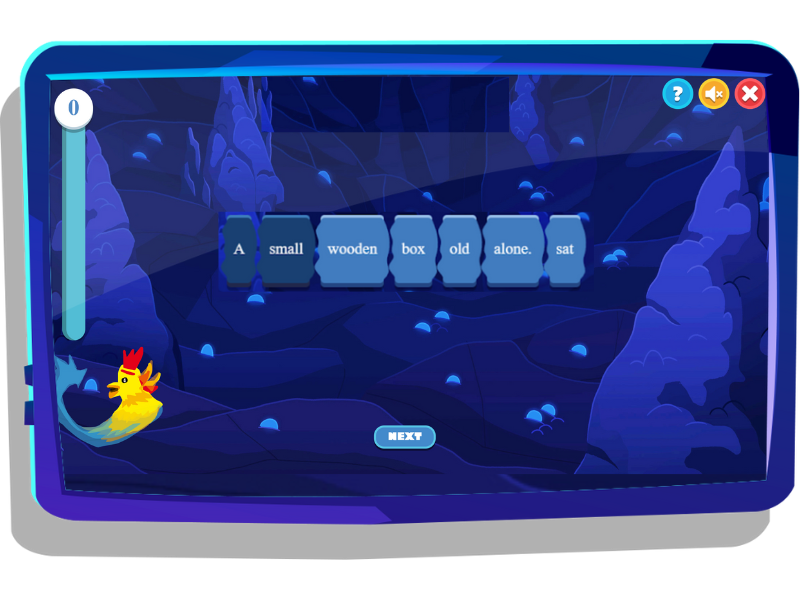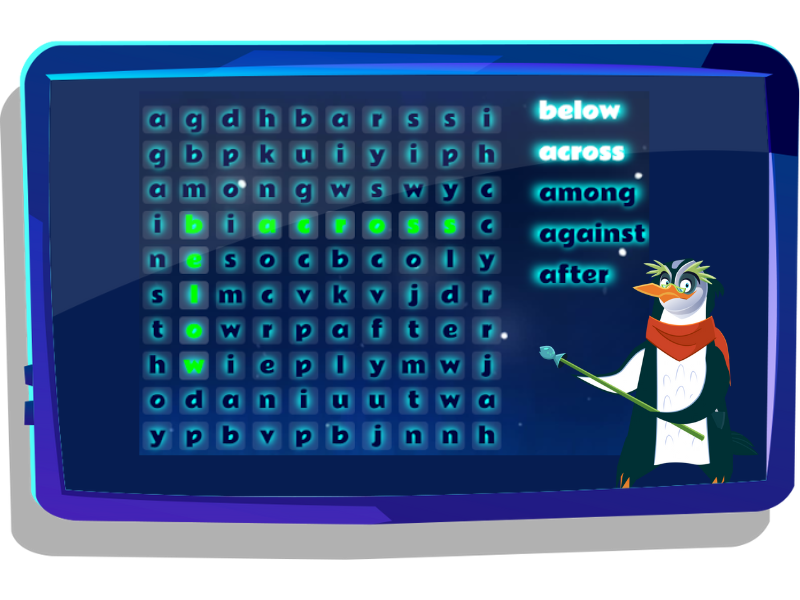Grade 4 Grammar
Discover Grade 4 grammar standards

Home > Language Arts > Grammar > Grade 4
In Grade 4, grammar becomes more complex with further rules for children to learn. They need to be able to follow these rules to ensure their writing is accurate in expressing their ideas, and contains sufficient grammatical variety to retain the reader's interest.
As always with young children, it's important to break down each skill so that they can practice using them in manageable chunks. To help you navigate Grade 4 grammar, we’ve compiled the following information and tips so that you can help your child attain fourth grade standards.
Grade 4 grammar covers all of the following:
- Use of relative adverbs
- Use of relative pronouns
- Use of modal auxiliary verbs
- Mastering sentence structure
- Use of progressive verb tenses
- Use of adjectives in the correct order
- Use of prepositions and prepositional phrases
Relative Pronouns
Pronouns can be used in the place of nouns to avoid repetition and provide a short way to refer to someone or something that has already been introduced in a sentence.
These are some of the most commonly used pronouns:
- she
- her
- hers
- he
- him
- his
- we
- you
Relative pronouns are used to introduce parts of a sentence (known as clauses) that are connected to the person or thing they refer to. The clauses the relative pronouns introduce are named relative clauses. There are only five relative pronouns:
- who
- whose
- whom
- which
- that
Examples
- The Night Zookeeper who arrived in the zoo yesterday will meet everyone today.
- The animal whose den was destroyed felt very sad.
- Doctor Florence whom I saw last week is very gentle.
- The orb, which had rolled out of Will’s hands, was cracked.
- The cave that Will found looked very messy.
Practice Tip
Challenge your child to complete quizzes, like the one pictured below, on Night Zookeeper that test their knowledge and understanding of relative pronouns.

Relative Adverbs
Relative adverbs introduce clauses that tell us more about the where, when, or why in a sentence. There are three relative adverbs:
- when
- where
- why
Examples
- Will last saw Grudge a year ago when he travelled to the Mountain in the Sky.
- The Campfire of Creativity where the animals gathered to tell stories was near.
- Will explained the reason why the animals must work together.
Progressive Verb Tenses
Progressive verb tenses describe actions that are ongoing. They are formed by adding the suffix -ing to a verb.


Practice Tip
On Night Zookeeper, quizzes like the below give children the opportunity to practice identifying which progressive tense a sentence uses.

Modal Auxiliary Verbs
Modal auxiliary verbs are used to express the possibility of future actions. They are sometimes known as helper verbs because they help a verb by adding additional meaning. There are ten modal verbs:
- can
- could
- may
- might
- must
- ought
- will
- would
- shall
- should
Examples
- Will can go to Tusk Temple tonight.
- Sam may have been splashed by Void tar.
- The animals must work together to defeat Lord Nulth.
Ordering Adjectives
When describing a noun using a number of adjectives, the adjectives should be in a particular order to help the sentence make sense. Most native English speakers learn this intrinsically when they begin to form sentences as young children.
Here is the order ruling:
Determiner Opinion Size Shape Condition Age Colour Pattern Origin Material Purpose Noun
That comfortable large rectangular dusty old red striped American wooden bedroom chair
Practice Tip
Sea Lion Sentences is a fun Night Zookeeper game that helps children to learn and practice the correct order of adjectives within a sentence.

Prepositions
A preposition is a word that connects a noun with the rest of a sentence. Prepositions show how the noun and the rest of the sentence are connected. These parts of a sentence are often connected in time (during, after) or space (under, over). These are some examples of prepositions:
- at
- during
- in
- on
- after
- before
- to
- over
- under
- with
- by
- of
Examples
- Sam went fishing with Will.
- After the battle, Will and Riya slept.
- Will was given the orb by Grandma Rivers.
Practice Tip
Children can familiarise themselves with prepositions using the Night Zookeeper Star Search game.

Prepositional Phrases
A prepositional phrase is a group of words that begins with a preposition and ends with the object of the preposition. They tell you more about a noun or a verb within a sentence. They often tell you where or when action is taking place.
Example
Will found the cat hiding under the table.
- preposition - under
- object - table
- prepositional phrase - under the table
How Night Zookeeper can help

Night Zookeeper is a language arts program that focuses on helping children develop their reading and writing skills in a fantastically fun way!
Our program provides many ways for your fourth grade child to develop key grammar skills, including interactive lessons, word games, and grammar challenges. Night Zookeeper includes an adjustable grade level feature, to allow children to learn at their own pace, so if you feel that your child needs a little extra practice, we’ve got you covered - sign up today to get a free 7-day trial!
Related articles


Make Reading & Writing Fantastically Fun!
- Award-winning reading & writing program for kids
- Improves spelling, grammar, punctuation & vocabulary
- Over 1,000 different learning games and activities



